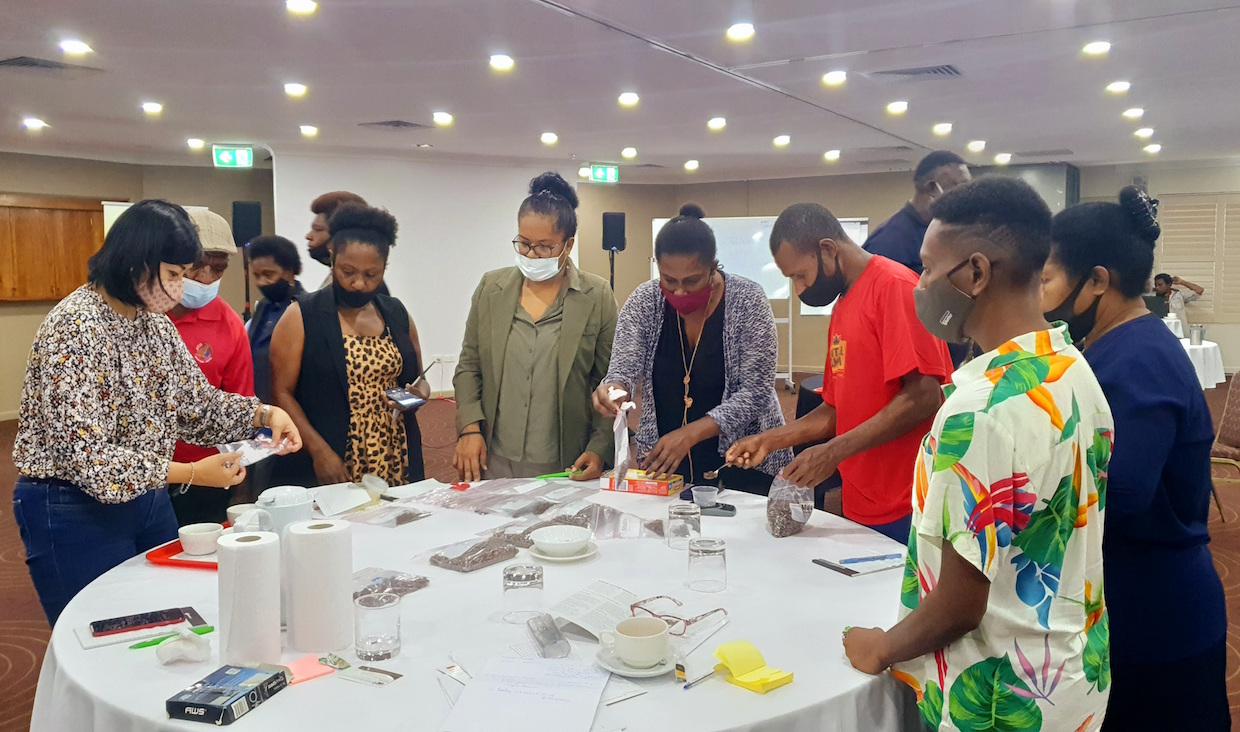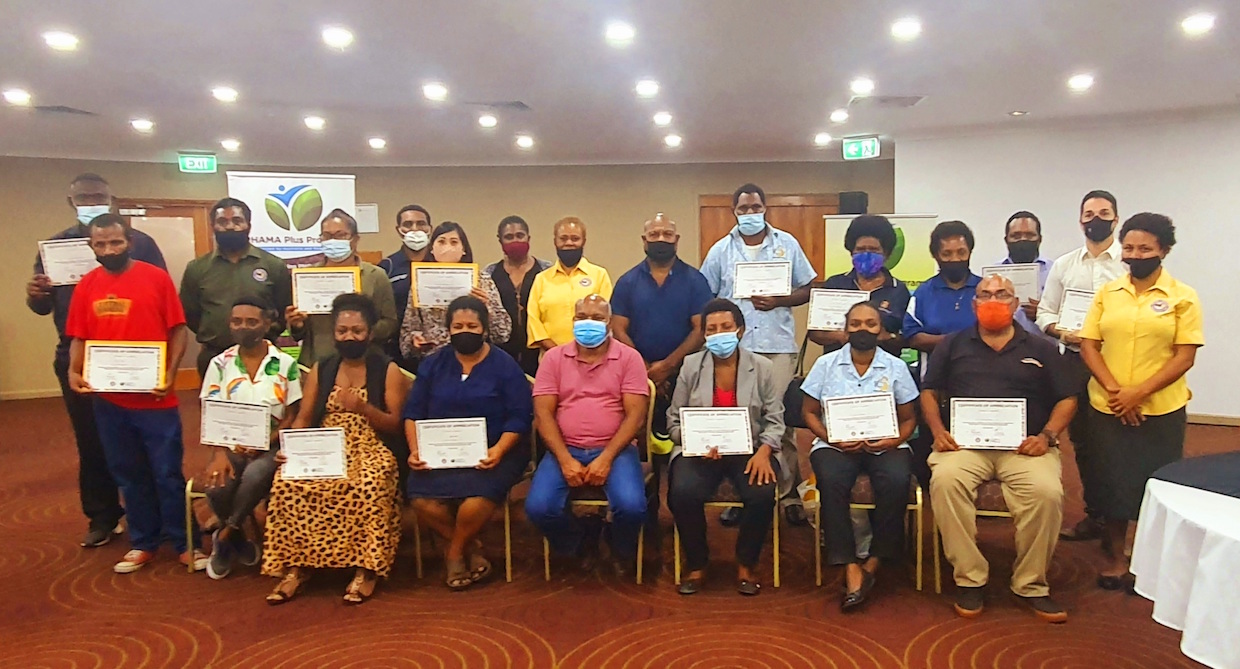
Participants at a recent green grading workshop at Port Moresby in Papua New Guinea. Courtesy photo.
Importers and roasters all over the world will be seeing new green bean grading standards on forthcoming coffee shipments from Papua New Guinea.
The new standards were formally approved by the PNG National Institute of Standards and Industrial Technology (NISIT) last year, and published by PNG Coffee Industry Corporation (CIC) (Facebook link).
“Green coffee quality standards are strictly enforced CIC’s Export and Quality Control office at the export port at Lae,” CIC Quality Control Officer Rose Romalus said in an announcement of standards rollout. “PNG is able to maintain market competitiveness through regulations and processes that protect the country’s image abroad.”
The standards revision project has been supported by PHAMA Plus, a program funded by the Governments of Australia and New Zealand.

Participants at a recent green grading workshop at Port Moresby in Papua New Guinea. Courtesy photo.
The new standards are designed in part to prevent price discrimination against smallholder coffee farmers, according to PHAMA Plus.
“Under the prior system, coffees not produced on large plantations were unable to receive the country’s top grade, regardless of quality achievement,” the announcement stated. “The update eliminates the restriction and simplifies the number of Arabica grade categories from 13 to five.”
The new arabica coffee grades are: A, B, Y, Y2, and Y3. A numerical suffix may be added to the top three grades to designate screen size.
“For arabica, the new A grade effectively replaces AA, A, AB, C, PB, C, X, and E, all of which had similar cupping qualities,” PNG coffee industry representative Mick Wheeler said. “The new B grade replaces the existing PSC grade, with Y becoming Y1, Y2 remaining essentially the same, and Y3, less restrictive.”
Related Reading
- A Taste of Laos: US Coffee Buyers Intrigued During Virtual Cupping Event
- High-Quality Coffee Provides Hope in the Highlands of Papua New Guinea
- COVID-19 Curtailed High-End Green Coffee Purchasing, Analysis Shows
In addition to the arabica grading changes, the CIC has published a brand new grade to designate superior robusta (R1), designed for the specialty market.
The CIC has been conducting a series of workshops, most recently a four-day workshop in Port Moresby for the Southern region, designed to ensure all stakeholders are familiar with the new documentation requirements and export guidelines.
Nick Brown
Nick Brown is the editor of Daily Coffee News by Roast Magazine.






Comment